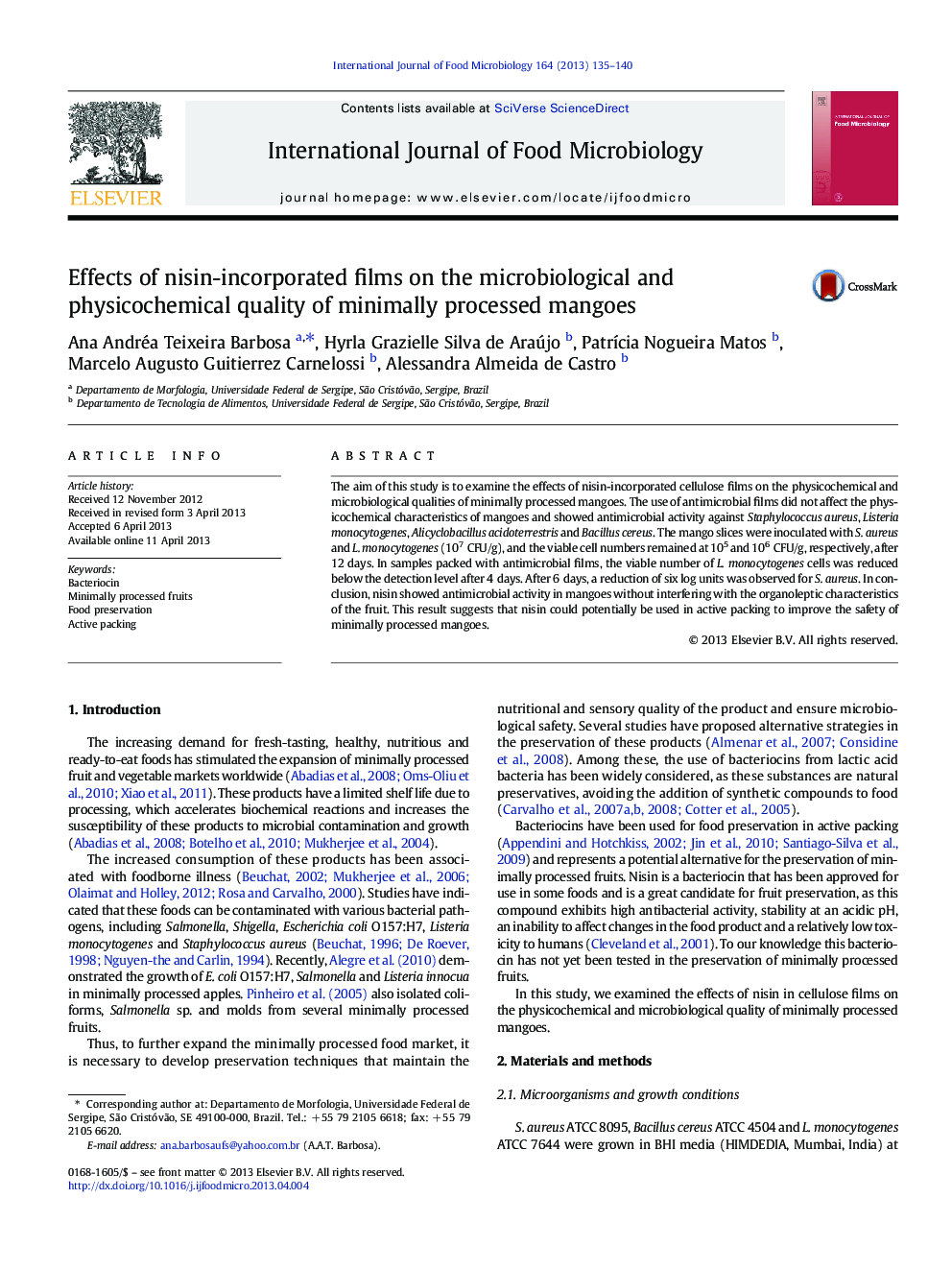| Article ID | Journal | Published Year | Pages | File Type |
|---|---|---|---|---|
| 4367139 | International Journal of Food Microbiology | 2013 | 6 Pages |
•The effects of nisin on the physicochemical and microbiological quality of minimally processed mangoes (MMP) were determined•The effects of nisin-incorporated cellulose film were tested•Nisin did not induce changes in the physicochemical characteristics of MMP•Nisin inhibited the growth of Listeria monocytogenes and Staphylococcus aureus strains in MMP•Nisin could potentially be used in the conservation of MMP
The aim of this study is to examine the effects of nisin-incorporated cellulose films on the physicochemical and microbiological qualities of minimally processed mangoes. The use of antimicrobial films did not affect the physicochemical characteristics of mangoes and showed antimicrobial activity against Staphylococcus aureus, Listeria monocytogenes, Alicyclobacillus acidoterrestris and Bacillus cereus. The mango slices were inoculated with S. aureus and L. monocytogenes (107 CFU/g), and the viable cell numbers remained at 105 and 106 CFU/g, respectively, after 12 days. In samples packed with antimicrobial films, the viable number of L. monocytogenes cells was reduced below the detection level after 4 days. After 6 days, a reduction of six log units was observed for S. aureus. In conclusion, nisin showed antimicrobial activity in mangoes without interfering with the organoleptic characteristics of the fruit. This result suggests that nisin could potentially be used in active packing to improve the safety of minimally processed mangoes.
